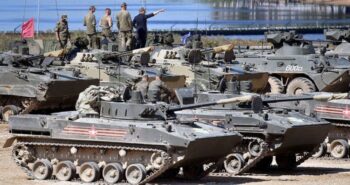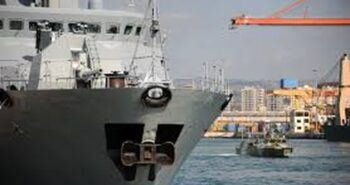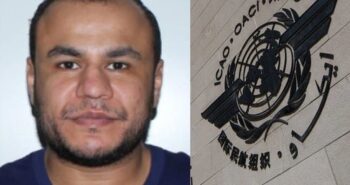By Adam Ghallab
 Libya should be a prosperous country. It’s a major exporter of oil and natural gas and is blessed with a strategic location and a small homogeneous populace.
Libya should be a prosperous country. It’s a major exporter of oil and natural gas and is blessed with a strategic location and a small homogeneous populace.
Unlocking such potential, however, requires stability. An objective which, over the last eight years, has eluded domestic and international efforts due to the absence of one essential ingredient.
This article will recall how failure to incorporate such ingredient led to the collapse of previous peace efforts, explain where it can be found and how to employ it to unlock a peaceful conclusion to Libya’s political transition.
So here is a quick recap of the main failed attempts to solve the country’s political crisis.
First, there was the Constitutional Drafting Assembly (CDA), elected in March 2014 to draft a constitution within 120 days. A constitution that was expected to peacefully conclude the transitional stage by addressing the main drivers of post-Gaddafi conflicts, namely, the issues of decentralization, the distribution of oil revenues, and the shape of government.
That target has been missed when the CDA not only exceeded its four-month mandate completing its work three years later in July 2017, but also produced a deeply disputed draft which must win two-thirds majority in a public referendum to be ratified as the new constitution.
And although the draft is yet to be put to referendum, many representatives of Libya’s social and political components — including the east and ethnic minorities — have already rejected it. Which means that even if it gains a statistical victory courtesy of the disproportionate geographic distribution of the country’s population, instead of ending the division, the draft constitution will in effect end up amplifying the concerns and grievances of the disapproving communities.
Furthermore, if it gets rejected twice in the referendum, the country’s eastern-based legislature, the House of Representatives (HoR), would task a new committee with producing another draft which would most likely get rejected by communities in the country’s west. And on top of that, the drafting process was marred by alleged irregularities exposing any outcome to legal challenges.
The conclusion: Mistrust among Libyan stakeholders will indefinitely block any prospect for agreeing a new constitution.
Second, amending the Libyan Political Agreement (LPA) reached in December 2015, to make the UN-backed Government of National Accord (GNA), which resulted from that agreement, harmonious, inclusive and more effective.
In late 2017 the United Nations Support Mission in Libya (UNSMIL) led an effort aimed at reducing GNA’s Presidency Council from nine to three members: a president and two deputies capable of not only co-existing, but also working together as a unity government to prepare for permanent presidential and legislative elections.
The talks collapsed after the HoR and the Tripoli-based High Council of State (HSC) failed to agree on names of members of the revised Presidency Council. In late 2018 both bodies tried again, without UNSMIL’s participation, only to arrive at the same failure.
And once again, reaching an agreement designed to end the division proved impossible for lacking trust between the two negotiating bodies.
Third, elections, which were suggested in May 2018 during a summit in Paris as an alternative to LPA’s amendments, however, they remain unattainable for lacking a legal framework. In other words, a constitution identifying the form of government and the president’s powers.
This third option remains a distant goal due to lack of trust between the country’s two political rivals: the east’s Libyan National Army (LNA), backed by its tribal and regional allies, versus the tribal and regional allies in the west.
Neither of these two camps which represent the opposite poles of Libya’s political crisis feel assured about its own safety and interests should the opposing camp won the presidency.
Having exhausted all avenues at its disposal to devise a peaceful conclusion to the political transition, UNSMIL is now focusing instead on improving the political status quo to at least maintain the current fragile stability.
That is why it will convene a Loya Jirga-style ‘National Conference’ designed to broaden political buy-in to the GNA by the main stakeholders, namely, Khalifa Hifter, LNA’s General Commander, supporters of the former regime and other factions of political Islam. If successful, the event will make the GNA a real unity government and would extend its term to pave the way for legislative and presidential elections.
How will the National Conference overcome the lack of a legal ground for elections remains to be seen. However, consolidating the LPA — which has prevented a repetition of the 2014 civil war — is undoubtedly the right approach to retain short term stability.
That said, Ghassan Salame, UNSMIL’s chief, should not lose sight of the fact that his main objective remains facilitating a permanent solution, especially when one exists right in front his nose.
Here is how UNSMIL can restore trust and employ it to unlock a permanent solution to Libya’s political crisis.
Ever since Libya came into being on Christmas Eve of 1951 only two things managed to keep its deeply tribal society together: the monarchy era constitution (1951- ‘69) and Muammar Gaddafi’s iron fest (1969-2011).
And throughout the chaos unleashed by Gaddafi’s removal which has engulfed the country over the last eight years, one public figure managed to maintain a nationwide appeal as a potential unifying leader who continues to command respect across the political spectrum, including among those at war against each other.
Having exhausted all other options, it’s high time for UNSMIL to seek support for its stabilization efforts from Crown Prince Mohammed El-Senussi (!!!).
The legal framework for such corrective move is already there given that the monarchy era constitution amended in 1963 is – technically – still valid given that it has been illegally abolished by Gaddafi’s military coup of 1969, prior to which it enjoyed support from across the nation as Libya’s undisputed constitution.
Recent polls have shown that Libyans are so desperate for stability that they would accept any willing strongman as their saviour. With the exception of hard-line former regime loyalists, this suggests that the Crown Prince should have no problem in appealing to a wide majority of the Libyan public.
In fact, over the last eight years, several factions have reached out to him offering their support including tribes, political parties and armed groups. And although he had turned down all such offers for being driven by either regional or tribal agendas, this demonstrates how those factions, which disagree on almost everything, were united in the belief that a return to monarchy was a viable solution to Libya’s political crisis.
In preparation for this paper, I have met the Crown Prince and found him to be willing and more than ready for such an historic mission.
Here is how UNSMIL can facilitate the reintegration of monarchy into Libya’s current political process:
- UNSMIL convenes a constitutive meeting coinciding with the anniversary of Libya’s Independence Day on 24 December 2019 during which the Crown Prince would address representatives of the Libyan nation, requesting their support for him as Libya’s constitutional monarch for six years.
- Based on articles (48) and (78) of the constitution, Libya’s new king then appoint a Council of Ministerscomprising three members representing the south, east and west. A PM and two deputies who shall operate equally by collectively exercising leadership duties over the executive branch on the king’s behalf and their decisions should be made by consensus. The king shall act as constitutional head of state representing Libya at home and abroad. His mission is to unite all Libyans and encourage inclusivity and progress on reconstruction and prosperity. The government’s HQ is in Tripoli, but the three leaders are also expected to regularly work from cities in their respective regions to be able to act as a government for all Libyans.
- The king calls legislative elections to establish the nation’s bicameral parliament, comprising a senate appointed by the king and an elected House of Representatives whose powers and duties are described in the constitution.
- According to articles (48) and (68), the king shall appoint ‘the High Authority for Defence and Security’ [al-Diwan al-Aa’la Lil Amn wa al-Difaa’] which shall act as the supreme commander of the armed forces and the police. Its mission is defending the state, its sovereignty, security and territorial integrity. Its decisions are to be taken by consensus and its members shall elect their president and two deputies. Its composition and leadership should reflect geographical and existing power balances among Libya’s main security actors.
- The king and his government shall seek support from the UN and the international community with achieving his government’s priorities of restoring security as well as economic and political stability. To ensure wide buy-in, the King shall reach out to the nation’s stakeholders and their regional backers to assure them that none is going to be excluded and that his government will build on previous progress made by the UN.
- A referendum shall be held on 24 December 2025, the sixth year of the king’s mandate. If two thirds voted ‘yes’, constitutional monarchy and its constitution will remain as the country’s permanent form of government. If two thirds voted ‘no’, the new HoR shall call presidential elections and consult the senate on constitutional amendments to change the form of government, as well as the powers of both the president and the High Authority for Defence and Security.
But will Libyans accept a solution imposed by the UN?
The short answer is yes. We Libyans hold a special place in our hearts for the United Nations and remember fondly the historic role played between 1949 and 1951 by Dr Adrian Pelt, its then High Commissioner to Libya, which resulted in granting our country its independence. Libyans today have high hopes for a similar historic stance from the UN to put our nation on the path toward stability. Not only are we going to accept such support, but it’s also the least we expect from the International Community.
History shows that similar approaches have worked in the past by successfully brokering a national reconciliation. After the English decapitated their monarch Charles I in 1649, they spent over a decade in political chaos marred with trial and error, including numerous failed constitutions until an army general went to the Hague in 1660 to bring home as their king, Charles II, the exiled son of the executed king.
The United Nations have explored numerous avenues over the last eight years. At the minimum, bringing back constitutional monarchy and its constitution as a temporary trust-building measure is an avenue worthy of equal exploration.
The stakes couldn’t be higher for the region and the wider international community if Libya’s political crisis persisted. Terrorist groups including the Islamic State are likely to continue exploiting the country’s power vacuum to find safe haven in its ungoverned territories. The three recent high-profile terrorist attacks at the heart of Tripoli were a reminder of what more could happen without a lasting political settlement.
***
Adam Ghallab is a Libyan researcher.
___________
The Libyan Times




